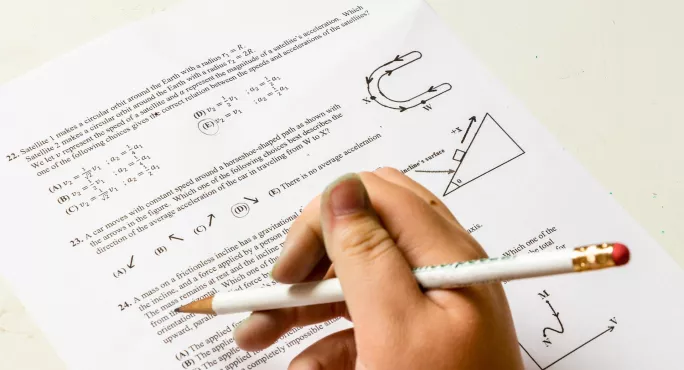Malpractice by teachers in Scottish qualifications has nearly trebled in a year, new figures show.
The figures - published for the first time today by exam body the Scottish Qualifications Authority (SQA) - show that last year there were 51 proven malpractice incidents, up from 18 in 2016.
The most common type of incident involved teachers allegedly giving improper levels of support to help pupils pass qualifications.
Of the 51 incidents of malpractice, 34 allegedly involved teachers giving pupils “more support than the specific qualification assessment arrangements allowed”.
Last year, Kevin Campbell, the president of the Scottish Secondary Teachers’ Association, told Tes Scotland that pressure to get pupils through qualifications was leading to “some pretty dodgy practices in schools”.
Teachers also report that the perceived lack of credibility of National 4 - uptake fell by more than 11 per cent between 2015 and 2017 - means they are under pressure to present pupils at the wrong level.
Increase in pupils cheating
Meanwhile, separate SQA figures show a rise in the number of pupils cheating in exams between 2016 and 2017, even though the number of entries for national qualifications dropped overall.
The most common form of cheating by pupils was plagiarism, followed by the use of mobile phones and collusion with others when the assessment was meant to be completed independently.
Overall, there were 183 penalties issued to pupils in 2017, compared with 169 the previous year.
The SQA, however, stressed that the number of candidates accused of malpractice while sitting SQA examinations in 2017 - including National 5, Higher, and Advanced Higher - “remains extremely low”.
The most common penalty - handed down in 113 cases - was that candidates would receive no award.
When it comes to malpractice involving schools and teachers, the SQA has a range of penalties, from issuing a written warning to barring schools from continuing to deliver its qualifications.
SQA chief executive Dr Janet Brown said: “SQA has a duty, in the interests of fairness and equity for all candidates, and to maintain the integrity and standards of our qualifications, to investigate where concerns of malpractice are raised.
“Any kind of malpractice is totally unacceptable. We will continue to work with our centres, the teaching profession and our markers and invigilators to ensure that our approaches to malpractice are applied.”
Want to keep up with the latest education news and opinion? Follow Tes on Twitter and like Tes on Facebook




